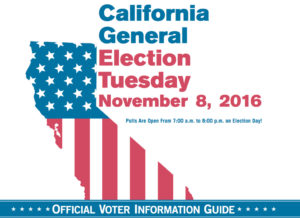A notice for those of you who’ve smelled the wood burning around here, I’ve been thinking . . . about teachers and guns . . . and carrying them on school grounds.
I taught at middle school/junior high for some forty (40) years and never felt the need to carry a weapon.
Back in the 70s we had some bomb threats and had to evacuate from the classrooms to our fire drill stations on the fields and school periphery. Some of us volunteered to check rooms and student lockers. The only things we ever found were a few road flares hung up to look like dynamite sticks.
Shot in the butt
I do remember one time when a student fired a gun just off campus, or from the sidewalk in front of the school. He wounded another student (not seriously). One of our teachers (a WWII vet) was on duty in front and went to confront the young man. The student pointed his pistol at the man’s face and told him to go away, in rather strident and impolite language.
I don’t remember exactly how it happened but a police officer was giving a self-defense demonstration with another teacher in our auditorium and the shooter was soon apprehended. No other shots were fired.
I spent a while directing traffic around the scene as the paramedics took the injured student to the hospital. — Other than that, the years have obscured my memories as this all happened thirty plus years ago.
I do, however, wonder what would have happened if our teachers had been armed.
What if . . .
If Bill had confronted the shooter with a drawn weapon, would the student have dropped his weapon or just opened fire and shot him? If he had opened fire immediately, would he have hit my friend and wounded or killed him? Would he have kept firing until he ran out of ammunition? Would he have hit anyone else?
I know my friend would have given the student a chance to put down his gun and surrender; he wouldn’t have just opened fire on the kid.
. . . the rest of us were armed?
You’ve probably seen some of the recent videos of police officers firing multitudes of bullets at suspects, some armed with nothing more than a cellphone. Imagine a firefight in front of a school at dismissal time. Hundreds of kids, armed teachers firing from different directions, possibly armed parents getting out of their cars and adding to the confusion and violence.
The military has a term for what can happen in incidents as confused as this — friendly fire. Even in police shooting incidents, sometimes the police officer who is shot is found to have been shot by a fellow officer — and these are veteran officers with years of training and experience.
Teachers with guns
Tell me truly, do you really want armed teachers on your child’s school grounds?
If volunteer teachers are to be stationed on school grounds, how much training should they undergo? A day? A week? A month? A year? What kind of training? The kind a police officer receives?
What kind of weapon shall a teacher carry? Shall it be a school district issued weapon or the teacher’s personal property? A pistol (automatic or revolver and what caliber)? A rifle? A shotgun? AR-15 semi-automatic type? Rubber bullets or real?
Shall they carry them at all times? Only when they are on duty outside of the classroom? Where do they store their weapons? In a holster with a safety strap on their hips? How about in a desk or filing cabinet, locked or unlocked? In the school safe? In thinking about this when was the last time a school near you was broken in to and robbed or vandalized? Think of these vandals now being armed.
ROE
What shall be the Rules of Engagement (ROE)? Under what circumstances may the teacher draw his or her weapon? Under what circumstances may a teacher actually fire his or her weapon? Or are you going to leave the decision to the teacher’s best judgment? What if the teacher makes the wrong decision, freezes or just plain panics? What if the teacher accidentally wounds, or kills, your child while dealing with an on campus shooter?
Remember, we live in an overly, to my mind, litigious society. Can you imagine the lawsuits coming from any mistake made by a teacher with a gun in these kinds of circumstances? Or do we legislate Good Samaritan type “hold harmless” laws to protect them?
Who
What kind, or kinds, of teachers do you want armed on the school grounds your child attends? How about the grandmotherly type who teaches kindergarten? I still remember Mrs. Lombard from sixty plus years ago and can imagine few people less likely to pack a six-gun.
How about one of the coaches? Maybe, but probably not the one your son tells you swears at them during practice, berates them for mistakes during the game and throws his headset at the referee when he is ejected from the game.
Your choice
Mentally go down the list of teachers at your child’s school. Who would you want to carry a gun on campus and, maybe, in the classroom? Is your list of the teachers you would trust the same as those of the other parents, the administrators, the teachers themselves?
And what of those of you who are, or were, teachers? Do you want to carry a gun in your classroom or the wider campus? Would you have wanted to back when you were teaching, for those of you who are no longer teaching?
I cannot answer any of the above questions, except for myself. And, the answer is NO.
No, teachers should not be armed and expected to deal with armed students, or other intruders, on school grounds.
If armed guards are needed full-time on campus, I believe we should hire retired, long service police officers who do not have records, or complaints, of resorting to violence as a first resort. They will be dealing with children, not hardened criminals; they need to know how to end touchy, potentially dangerous situations through de-escalation not by resorting to threats and violence.
Not the answer
Giving more people guns is not the answer. We need to de-escalate our entire society.
Through our government and other organizations and businesses we spend millions of dollars dealing with alcoholism and its effects. We spend millions of dollars dealing with smoking and its effects. We even put warning labels on packs of cigarettes; how about warning labels on guns?
We license and require practical, as well as written tests for those who drive our cars, trucks, buses and for those who fly airplanes. How about we require the same of those who own and use guns? (Yes, I do know the WHY/WHY NOT of the situation, but we can deal with through the ballot box and appropriate legislation.)
We will not improve the situation by repeating the same answers again and again; we will not improve the situation by yelling and screaming at each other and invoking our “God-given and Constitutional Rights” yet another time.
The answer lies in civil discourse, in wanting for others the best we have to offer of ourselves and in electing to office those best able to speak for us.
Back when
In our youth the world was simpler and better only because we had not the eyes nor experience of the adults around us.
In the 60s we had “duck and cover” drills; our grandchildren have “shelter in place” drills.
Vote
Things will not improve until we become better people.
Start with yourself: be the change you want.
Vote for those who will.


 I am not a reading teacher nor a statistician, but I have used the Grammar Analysis tools available in various editions of MS Word to analyze the textbooks I have used as well as many of my assignments, tests and notes to both students and parents.
I am not a reading teacher nor a statistician, but I have used the Grammar Analysis tools available in various editions of MS Word to analyze the textbooks I have used as well as many of my assignments, tests and notes to both students and parents. The above “analysis” is not scientific; it is personal. I have taken what I believe to be representative sections of the Voter Information Guide and subjected them to an easy to use and verify reading level analysis. Other tools and sections may (and probably will) give different results.
The above “analysis” is not scientific; it is personal. I have taken what I believe to be representative sections of the Voter Information Guide and subjected them to an easy to use and verify reading level analysis. Other tools and sections may (and probably will) give different results.